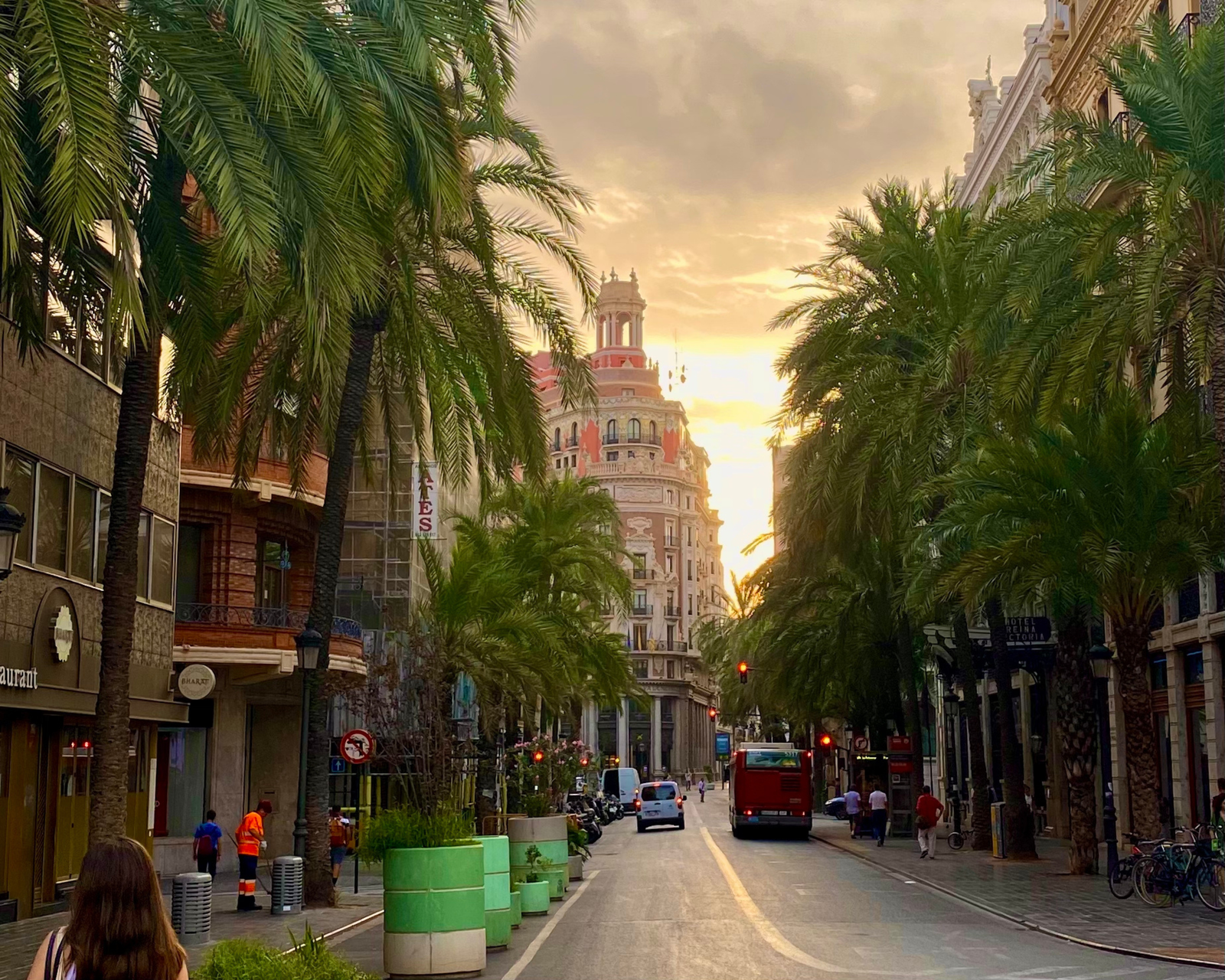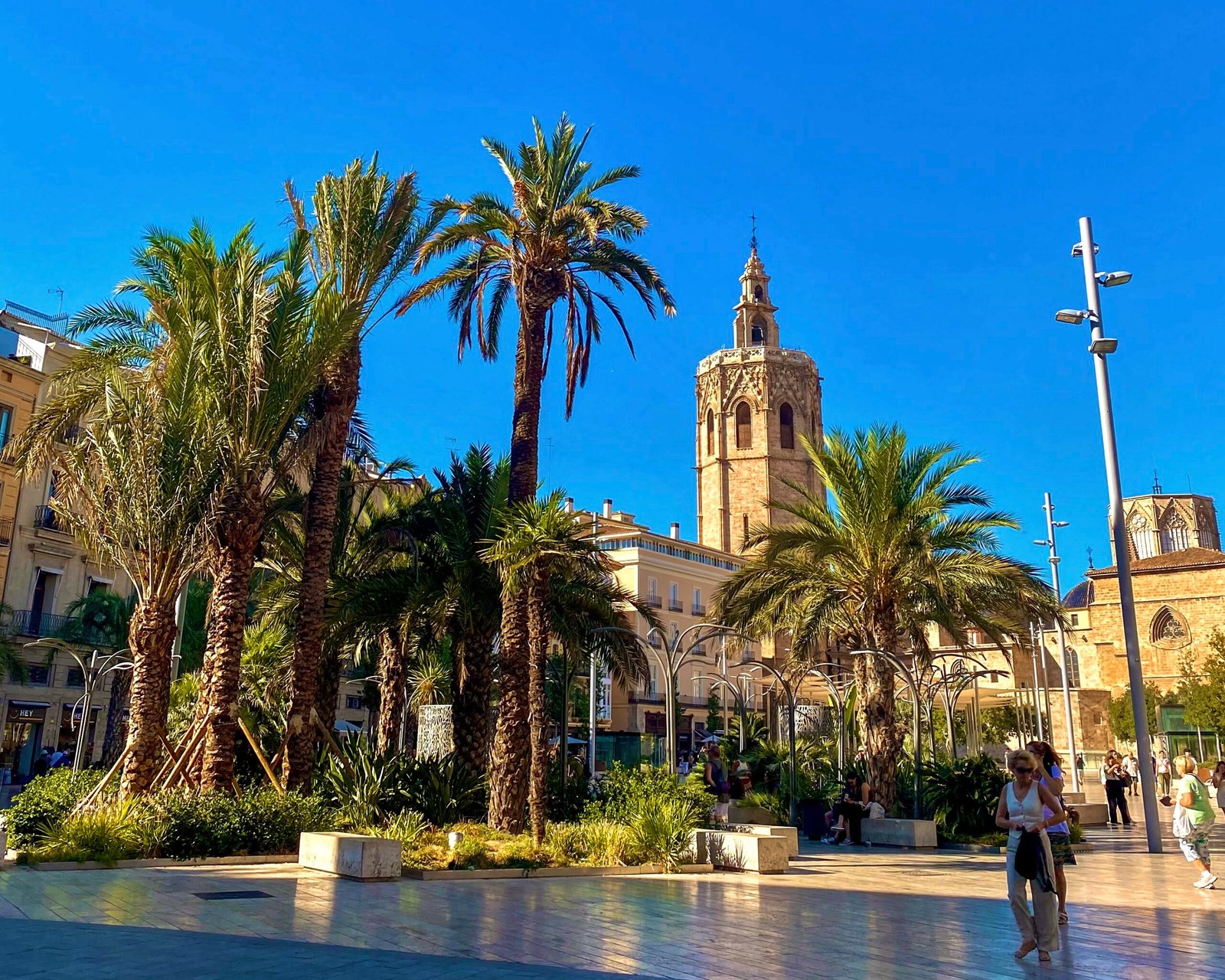
Why move to Valencia?
Moving to Valencia is an increasingly attractive option for people from all over the world due to its excellent quality of life, Mediterranean climate and perfect mix of modern and traditional. The city offers a relaxed yet vibrant atmosphere, ideal for both families and professionals. In addition, Valencia is an economical city compared to other major European cities, offering a wide range of opportunities in sectors such as technology, tourism and education. The city’s rich culture, world-famous cuisine, and proximity to both the sea and the mountains make it a highly desirable destination.
About the city's appeal to expats and newcomers
Valencia is a magnet for expats for several reasons: firstly, its compact size makes it easy to adapt quickly, and its excellent public transport system makes getting around the city simple. It also stands out as a bilingual city, where both Spanish and Valencian are spoken, allowing for an enriching cultural immersion. In addition, the expatriate community is constantly growing, which facilitates access to social networks and support during the transition. The reasonable cost of living, combined with a rich cultural offer, urban beaches and a healthy lifestyle, makes Valencia a favourite destination for those looking for a new home in Spain.
Planning your relocation to Valencia
- Visa and residency requirements
Visa and residency requirements depend on the country of origin. For citizens of the European Union (EU) or European Economic Area (EEA), a visa is not required, but you must register as a resident if you plan to stay for more than three months. For non-EU/EEA nationals, it is necessary to apply for a visa before moving. The type of visa varies: work visa, student visa or non-profit residence visa. Upon arrival, it is necessary to obtain a Foreigner Identification Number (NIE), which is essential for legal formalities such as opening a bank account or renting a house.
- Moving costs and budget
Moving costs vary depending on the volume of belongings and distance. Sending furniture and personal effects from other countries can cost between 1,000 and 5,000 euros, depending on the means of transport (sea or air). In addition, it is necessary to consider initial expenses such as the rent or deposit of the property, agency fees (if applicable), and the contracting of services (water, electricity, internet). You should also budget for the first few months of living in Valencia, with the cost of living varying between 1,200 and 1,800 euros per month, depending on lifestyle and location.
- Finding housing: Renting vs. buying
Renting is the most common option for newly arrived expats, as it offers greater flexibility. Rental prices vary by area, ranging from 600 to 1,500 euros per month. Popular areas include the historic centre, Ruzafa and El Cabanyal. Buying can be a long-term option, but the process is more complex and requires familiarity with the property market. Buying prices in Valencia are competitive compared to other Spanish cities, but vary according to location, ranging from 1,500 to 3,000 euros per square metre. It is advisable to use real estate agents and ensure that all legal requirements are met.
- Packing and shipping belongings
Packing and shipping belongings is a key aspect of the move. Hiring an international moving company can make the process easier, as they take care of packing, transportation and delivery. When planning the shipment, consider whether it is more cost-effective to bring furniture or to buy it in Valencia, where there are inexpensive options such as Ikea and local shops. It is advisable to carefully pack fragile items and label boxes to facilitate unpacking. It is also important to be informed about possible import duties or restrictions, especially for valuable items or electronics.
Settling in Valencia
- Setting up basic services and internet
When settling in Valencia, one of the first tasks is to contract basic services such as electricity, water, gas and internet. Many homes already have these services connected, but if you need to sign up, companies such as Iberdrola (electricity), Aguas de Valencia (water) or Naturgy (gas) are common. For internet, there are various options such as Movistar, Vodafone or Orange, which offer combined internet, telephone and television packages. The installation process is generally quick, and internet speed in Valencia is good, with fibre optic options available in most urban areas.
- Registration with the local authorities (Empadronamiento)
Empadronamiento is the process of registering your residence with the Valencia City Council. It is a crucial step, as it allows you to access services such as the public health system, education and other administrative procedures. To register, you will need a rental contract or document proving your address, your passport or ID card, and in some cases, proof of social security registration. Registration is free and can be done at the town hall itself or at other municipal offices around the city.
- Health system and medical insurance
Spain has a high-quality, universal public health system, to which you will have access after registering and obtaining your social security number. If you are employed in Valencia or are a resident, you can access public health care, which includes visits to the general practitioner, hospital care and treatment. In addition, many people opt for private health insurance to reduce waiting times or access additional services. Companies such as Sanitas, Mapfre and Adeslas offer private medical insurance, and prices vary depending on the cover you choose.
- Open a bank account
To manage your finances in Valencia, opening a bank account is essential, as it will allow you to set up direct debits for utilities, receive your salary and make purchases efficiently. Banks in Spain require some documents to open an account, such as the NIE (Número de Identificación de Extranjero), proof of address (such as empadronamiento), and your passport or DNI. The main banks in Valencia are CaixaBank, BBVA, Banco Santander, and Sabadell, although there are also international banks and online options. Some accounts are free, while others may charge maintenance or card fees.
Living in Valencia
- Best neighbourhoods for expats
– Ruzafa: Known for its bohemian and cultural atmosphere, ideal for young and creative people. It offers a wide variety of cafes, restaurants and markets.
– El Carmen: Located in the old town, it is popular for its history, architecture and nightlife. It attracts those looking for an authentic experience.
– Malvarrosa: Perfect for those who want to be close to the beach, with a relaxed atmosphere and plenty of leisure and dining options.
– Benimaclet: A vibrant and multicultural neighbourhood, ideal for families and professionals, with good transport links and services nearby.
READ ALSO: Living in Valencia: Best Areas
- Cost of living comparison
Compared to other Spanish cities such as Barcelona or Madrid, Valencia is more affordable. The rent for a one-bedroom flat in the centre ranges between 800 and 1,200 euros, while in more distant areas it can go down to 600-800 euros. Monthly expenses (food, transport, leisure) are also lower, with an average cost of living of 1,200 to 1,800 euros per month, depending on lifestyle.
- Transport options (buses, metro, cycling)
Valencia has an efficient public transport system including buses and metro. The metro network connects key areas of the city and nearby areas, making it easy to get around. Buses are frequent and cover the whole city. In addition, Valencia is a cycling-friendly city, with many routes and a bike-sharing system (Valenbisi), allowing you to explore the city in an environmentally friendly and healthy way.
READ ALSO: Guide to the public transport in Valencia
- Shopping, gastronomy and entertainment
Valencia offers a rich variety of shopping options, from local boutiques in Ruzafa to large shopping centres such as Aqua Multiespacio. Gastronomy is one of the big attractions, with the famous paella and an abundance of tapas and markets such as the Central Market, where you can find fresh, local produce. In terms of entertainment, the city has numerous festivals (such as Las Fallas), a vibrant nightlife, theatres, cinemas and cultural events, guaranteeing something for everyone.
Learning the local language
Importance of Spanish and Valencian
Spanish is one of the most widely spoken languages in the world, which makes it a crucial tool for global communication. In Spain, Valencian, as a co-official language in the Valencian Community, plays a fundamental role in the cultural and social identity of the region. Promoting its use contributes to the preservation of the linguistic heritage and fosters a sense of belonging among speakers. Moreover, fluency in both languages opens up employment and academic opportunities in an increasingly multicultural context.
Language schools and courses in Valencia
Valencia has several options for learning Spanish and Valencian. Some of the most outstanding schools and courses are:
– Escuela Oficial de Idiomas (EOI): Offers regular Spanish and Valencian courses with a focus on formal teaching and official certifications.
– Academia de Español “La Naranja”: Specialises in Spanish courses for foreigners, with a focus on cultural immersion.
– Valencian International University (VIU): Offers online programmes to learn both Spanish and Valencian, ideal for international students.
– Centre de Llengües de la Universitat de València: Offers Valencian and Spanish courses, aimed at university students and the general public.
– Cultural Valencia: Provides Spanish courses with cultural activities that help to enhance learning in a practical context.
These options ensure that a variety of methods and approaches are available for those wishing to learn these languages.



